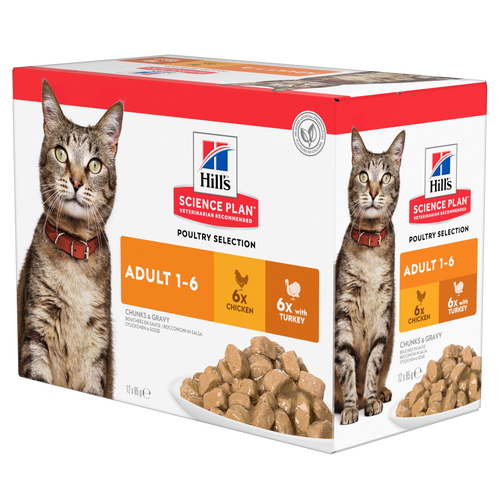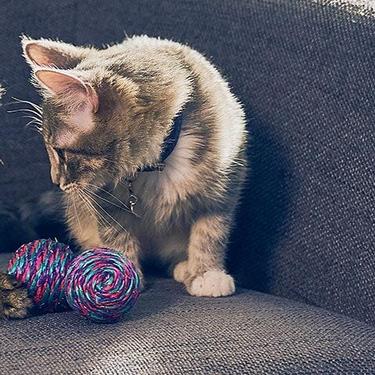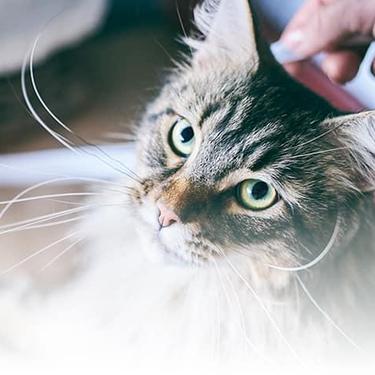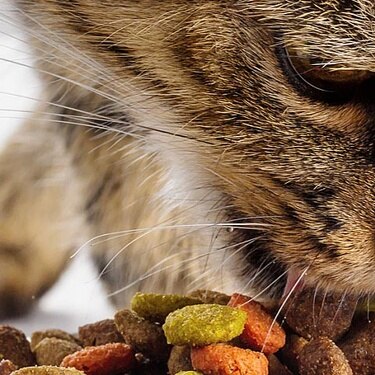
-
Find the right food for your petTake this quiz to see which food may be the best for your furry friend.Find the right food for your petTake this quiz to see which food may be the best for your furry friend.Featured products
 Adult Wet Dog Food with Beef
Adult Wet Dog Food with BeefHill's Science Plan Adult Multipack Wet Dog Food with Chicken, Beef & Turkey are complete premium pet foods for adult dogs from 1 year. Your dog will love these deliciously smooth and savoury minced loaves, formulated for balanced nutrition and overall health.
Shop Now Mature Adult Dog Food
Mature Adult Dog FoodHill's Science Plan Mature Adult Multipack Wet Dog Food with Chicken & Beef are complete premium pet foods for mature adult dogs from 7 years. Your dog will love these deliciously smooth and savoury minced loaves, formulated to deliver the appropriate amount of energy to support the needs of adult dogs.
Shop Now Puppy Food
Puppy FoodHill's Science Plan Puppy Multipack Wet Dog Food with Chicken & Beef are complete premium pet foods for growing puppies from weaning until 1 year old and for pregnant and nursing dogs. Your puppy will love these deliciously smooth and savoury minced loaves, formulated for balanced nutrition and overall health.
Shop NowFeatured products Adult Multipack Wet Cat Food with Beef, Ocean Fish & Chicken
Adult Multipack Wet Cat Food with Beef, Ocean Fish & ChickenTender chunks in gravy for cats, with high-quality protein to maintain lean muscle. With vitamin E and omega-3s & -6s for healthy skin and balanced minerals to support healthy vital organs.
Shop Now Light Adult Multipack Wet Cat Food with Chicken & Ocean Fish
Light Adult Multipack Wet Cat Food with Chicken & Ocean FishTender chicken chunks in gravy for cats, with L-carnitine and fewer calories for ideal weight management. Packed with high-quality protein, omega-6s, and vitamin E for shiny fur and healthy skin.
Shop Now Mature Adult Wet Cat Food with Chicken
Mature Adult Wet Cat Food with Chicken
Tender chicken chunks in gravy for mature adult cats. Made with easy-to-digest ingredients, high-quality protein for lean muscle maintenance and antioxidant vitamins C+E for optimal health.
Shop Now -
Dog
- Dog Tips & Articles
-
Health Category
- Weight
- Food & Environmental Sensitivities
- Urinary
- Digestive
- Joint
- Kidney
-
Life Stage
- Puppy Nutrition
- Adult Nutrition
- Senior Nutrition
Cat- Cat Tips & Articles
-
Health Category
- Weight
- Skin & Food Sensitivities
- Urinary
- Digestive
- Kidney
-
Life Stage
- Kitten Nutrition
- Adult Nutrition
Featured articles The Incredible Science Behind Your Pet's Microbiome
The Incredible Science Behind Your Pet's MicrobiomeLearn what your pet's microbiome is, how it contributes to your pet's gut and overall health, and why nutrition is important in maintaining healthy microbiomes.
Read More The Right Diet For Your Pet
The Right Diet For Your PetIn people, the right diet is very important. If you are eating the wrong way for your metabolism, activity level, age and lifestyle you could end up with health issues.
Read More Show some love with wet foods: a great choice for pets with health issues
Show some love with wet foods: a great choice for pets with health issuesShow some love with wet foods: a great choice for pets with health issues.
Read More -


Have you noticed that your cat keeps being sick or they sometimes seem off their food? You may have noticed that they have occasional runny poo or seem uncomfortable after eating. These could all be signs that your cat has a sensitive stomach. But what does that mean and what can you do to help?
What is a sensitive stomach?
The term ‘sensitive stomach’ really just means an animal that has frequent gastrointestinal upsets. This could be vomiting, retching, diarrhoea, colitis or, in cats, even passing frequent hairballs. There are lots of different causes of a sensitive stomach, so which food you use to tackle it will depend very much on the underlying cause.
Reading the signs
All cats, like us humans, get the occasional one-off tummy issue. Maybe your cat caught a mouse that didn’t go down well. But if you notice that your cat has a gastrointestinal upset every few days, or even every couple of weeks, then it’s best to see your vet to make sure there isn’t a medical issue. If your cat goes out a lot, you might not notice the overt signs, so always try to weigh your cat every month, either at home on your scales or at the vet practice. Noticing weight loss is very important for spotting disease in cats at an early stage. This habit also helps you spot if your cat is becoming too fat, which can be just as bad!
What might cause a cat’s sensitive stomach?
The most common causes of a sensitive stomach in cats are:
- Food allergies or intolerances.
- Stress. This is particularly important in cats, especially those living with other cats or kept solely indoors. Stress may be an important factor in Irritable Bowel Syndrome (IBS) in dogs and cats, as well as humans. This isn’t fully understood at this time but research is ongoing.
- Parasites
- Infections.
When you go to the vet, stool samples and even videos of your cat being sick can be really helpful if you can get them. Your vet may want to do various tests, including blood tests, stool analysis, ultrasound or x-rays. In some cases, biopsy may be required.


Tasty Tips
Feeding a cat with a sensitive stomach
If your vet finds a definite underlying cause like parasites, they may simply need to administer treatment. If there is no apparent cause, it may be that your cat will need a change of food. Many cats with a ‘sensitive stomach’ may have what’s called Food Responsive Enteropathy (FRE). These are cases which, as the name suggests, get better when the cat is fed a food that supports digestive health. It may be that your cat has been on a lower-quality food they have trouble digesting, or one that has too much fat for their body to tolerate. Foods that support gut health have high-quality, highly digestible ingredients. They contain omega-3 fatty acids to fight inflammation, along with great sources of prebiotic fibres, which nourish the ‘good’ bacteria that keep the gut microbiome and immune system healthy.
If your cat doesn’t get better with a change of food, your vet may try antibiotics or steroids, or suggest an elimination diet. These foods are aimed at cats that are suspected of having a food allergy or intolerance. Adverse food reactions (the term that covers both allergies and intolerances) are usually caused by a certain ingredient in the food, such as a meat protein. Your vet may give you a food that contains hydrolysed proteins, which are broken down to a size that is too small for the body to recognise as allergenic. Your vet may also suggest a food that contains ingredients that your cat has never eaten before. With these elimination trials, it is important to feed ONLY the food your vet has given you and no titbits or table scraps. Usually a trial for gut issues lasts 2-4 weeks, but your vet will explain it all to you. Your cat may need to stay on the special food for life if an intolerance is found.
Your vet may recommend wet food for your cat or a mix of wet and dry. Stomach upsets can quickly make cats dehydrated and wet foods are a great way to increase water intake. Also, lots of cats really love some wet food in their diet, so they may be a good way to get your cat eating well again. Follow your vet’s advice and always ask about how to transition your cat from their old food to the new one.
Reviewed by Dr. Hein Meyer, DVM, PhD, Dipl-ECVIM-CA


One of our staff authors prepared this article for you
Related products

Tender chicken chunks in gravy for mature adult cats. Made with easy-to-digest ingredients, high-quality protein for lean muscle maintenance and antioxidant vitamins C+E for optimal health.

Tender chunks in gravy for cats, with high-quality protein to maintain lean muscle. With vitamin E and omega-3s & -6s for healthy skin and balanced minerals to support healthy vital organs.


Tender chicken chunks in gravy for cats, with L-carnitine and fewer calories for ideal weight management. Packed with high-quality protein, omega-6s, and vitamin E for shiny fur and healthy skin.
Related articles

Kittens grow a lot in their first year, so it is important to provide them with the proper nutrients early, so they grow up healthy and strong. Learn more.

There are three common ways to feed a cat. Each way has its advantages and disadvantages.

Learn how to make homemade cat treats that are healthy for your pet with this recipe from Hills Pet Nutrition.

From essential vitamins & minerals to different types of meat, learn what to look for when choosing the best cat food for your feline.

Put your cat on a diet without them knowing
Our low calorie formula helps you control your cat's weight. It's packed with high-quality protein for building lean muscles, and made with purposeful ingredients for a flavourful, nutritious meal. Clinically proven antioxidants, Vitamin C+E, help promote a healthy immune system.
Put your cat on a diet without them knowing
Our low calorie formula helps you control your cat's weight. It's packed with high-quality protein for building lean muscles, and made with purposeful ingredients for a flavourful, nutritious meal. Clinically proven antioxidants, Vitamin C+E, help promote a healthy immune system.

